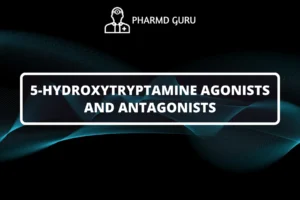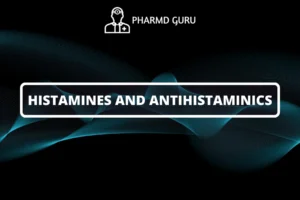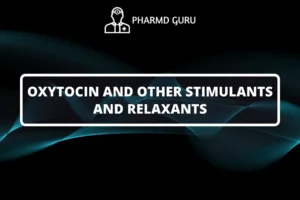Nasal congestion, commonly known as a stuffy nose, can be a bothersome symptom caused by various factors such as allergies, colds, or sinus infections. Nasal decongestants are medications specifically designed to alleviate nasal congestion by reducing the swelling and inflammation of the nasal passages. In this article, we will explore the pharmacology of nasal decongestants, their mechanisms of action, common types of nasal decongestants, and their role in providing relief from nasal congestion.
SCROLL DOWN TO THE BOTTOM OF THIS PAGE FOR ACTUAL NOTES.
TABLE OF CONTENTS:
- Introduction
- Mechanisms of Action
- Types of Nasal Decongestants
- Pharmacokinetics
- Therapeutic Applications
- Considerations for Use
Introduction
Nasal congestion occurs when the blood vessels in the nasal passages become swollen and inflamed, leading to a blocked or stuffy nose. Nasal decongestants work by constricting these blood vessels, thereby reducing the swelling and opening up the nasal passages, allowing for improved airflow.
Mechanisms of Action
Nasal decongestants act through various mechanisms to provide relief from nasal congestion:
- Alpha-Adrenergic Agonists: These decongestants, such as phenylephrine and oxymetazoline, work by stimulating alpha-adrenergic receptors on the blood vessels in the nasal mucosa. This stimulation leads to vasoconstriction, narrowing the blood vessels and reducing nasal congestion.
- Topical Steroids: In some cases, nasal decongestants may include topical steroids, which help reduce inflammation in the nasal passages, providing relief from congestion.
Types of Nasal Decongestants
There are different types of nasal decongestants available, including:
- Short-Acting Nasal Decongestants: These decongestants provide quick relief from nasal congestion and are typically used for short durations, such as up to three days. Examples include phenylephrine and xylometazoline.
- Long-Acting Nasal Decongestants: These decongestants provide longer-lasting relief and are suitable for extended use. Examples include oxymetazoline and fluticasone (a topical steroid).
Pharmacokinetics
Nasal decongestants are available in various formulations, including nasal sprays, nasal drops, and oral tablets. Nasal sprays and drops act directly on the nasal passages, providing localized relief, while oral tablets work systemically. The onset of action and duration of effect may vary depending on the specific nasal decongestant used.
Therapeutic Applications
Nasal decongestants have therapeutic applications in managing nasal congestion associated with:
- Common Cold: Nasal congestion is a common symptom of the common cold, and nasal decongestants can help provide temporary relief, facilitating easier breathing.
- Allergic Rhinitis: Nasal congestion caused by allergies, such as hay fever, can be effectively managed with nasal decongestants to reduce congestion and improve overall nasal airflow.
- Sinusitis: Nasal decongestants may be used in the management of sinusitis to alleviate nasal congestion and promote sinus drainage.
Considerations for Use
When using nasal decongestants, it is important to keep the following considerations in mind:
- Duration of Use: Nasal decongestants should generally be used for short durations, typically up to three days, to avoid a condition known as rebound congestion. Prolonged use of nasal decongestants can lead to worsening nasal congestion when the medication is discontinued.
- Dosage and Administration: It is important to follow the recommended dosage and administration instructions provided with the specific nasal decongestant product to ensure safe and effective use.
- Potential Side Effects: Nasal decongestants can have side effects, including nasal dryness, irritation, and in rare cases, rebound congestion. It is important to use them as directed and consult a healthcare professional if any adverse effects occur.
- Contraindications: Some individuals, such as those with certain medical conditions or taking specific medications, may have contraindications to the use of nasal decongestants. It is important to consult a healthcare professional if there are any concerns or questions regarding the use of nasal decongestants.
ACTUAL NOTES:




